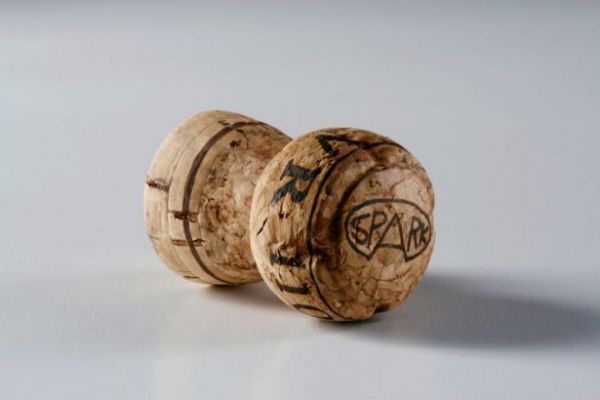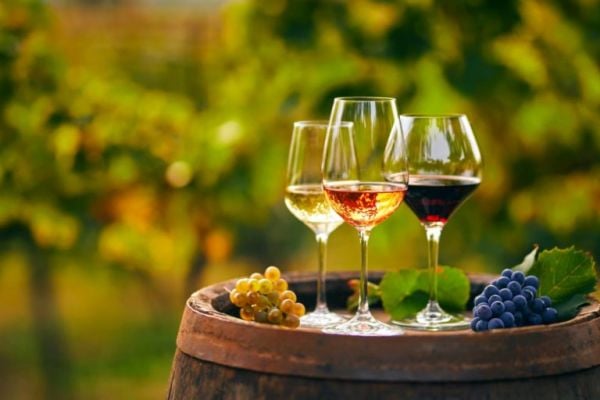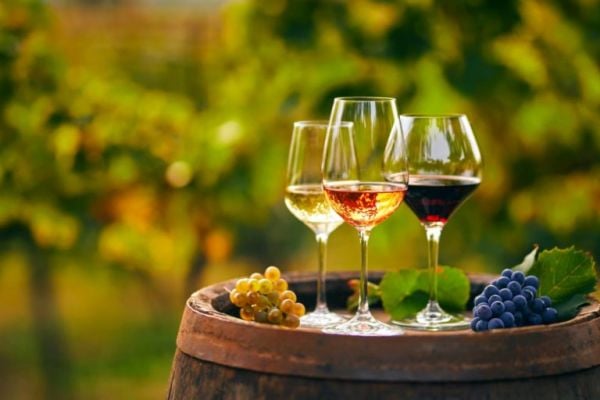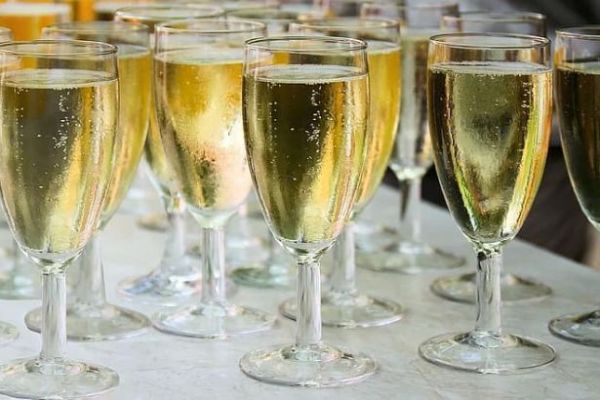Glass of bubbly in hand, I took in the panorama of Manhattan’s twinkly lights from the terrace of a posh penthouse in Chelsea for the U.S. debut of the grand 2009 Louis Roederer Cristal Champagne back in October. It was the perfect elitist bling to match the view, and I happily lapped up my fair share.
Just in case you didn’t know, Cristal is a tête de cuvée (aka prestige cuvée), created in 1876 for Russian Czar Alexander II. Much, much later it became a favorite fizz of rappers. Most Champagne houses, from grandes marques such as Moët to grower-producers like Jacques Selosse, make at least one of these luxury cuvées. You spot them by their stratospheric prices, starting at about $150 and going into the thousands.
In a world happy enough with prosecco and pét-nat, are any of these pricey bubbles truly worth it? Absolutely (see below). Even if life is full of disillusionment, a surprising number of deluxe Champagnes still represent the highest-quality fizz you can find. In other words, a great wine experience.
What you’re paying for are the very best grapes from grands crus and premiers crus vineyards; years of extra aging in the region’s cold, chalky cellars (which gives the wines more complex flavors and aromas); the rarity factor; and, of course, prestige.
The recent investment in Champagnes as the next great collectible wine kicked off a trend in limited editions and special releases. Champagne houses shamelessly now add a double dose of glitz by persuading avant-garde artists to design labels and nestling the bottles in handmade velvet-lined boxes.
To get the best deal, though, go for the taste of the luscious wine inside the bottle, not for the special-edition flashy packaging. The 2002 Cristal Gold Medallion Jeroboam, for example, is covered with 24-karat-gold latticework and costs $17,000 to $22,000. Four regular bottles of the same wine would set you back a mere $1,200 and will be equally fabulous to drink.
If bling is your thing, though, try to track down a Goût de Diamants, a Champagne with a diamond-studded bottle that premiered three years ago, at $1.8 million, and is no longer in production.
Style, not quality, is the big differential among the best brands at the luxury level, and each Champagne house has its own concept of what a top cuvée should be. All- chardonnay examples tend to be super light and elegant; those from mostly pinot noir—full, rich, and powerful. Rosé versions? For some reason, they always cost much more. Even though they’re slightly trickier and more expensive to make (most producers add a percentage of still red wine to the basic blend for color), that doesn’t justify adding 30 percent or more to the price.
My recommendations below are what to stock in the new Rolls-Royce Phantom Zenith’s bespoke foldout Champagne bar for your classy picnic. You can trust me on that.
But to get every bit of their flavor and finesse, forget the flute. Krug has created a unique crystal glass called the Joseph, with a shape halfway between a flute and a white wine glass, but any stemmed tulip-shape will do just fine.
The Best Ultra-Luxury Champagnes:
2004 Philipponnat Clos des Goisses Brut ($160–$200)
Started in 1935, Clos des Goisses was the first single-vineyard grande marque Champagne, made from grapes grown on a steep slope of pure chalk. A bargain for the quality, it’s a striking Champagne, powerful and rich with a lively energy and tastes of lemon peel, pear, hazelnuts, and mint.
2003 Bruno Paillard Extra Brut N.P.U. (Nec Plus Ultra) ($195)
The flagship bubbly from this producer is from a very hot growing season but has wonderful balance and is fresh and vibrant, with light notes of honey, plus depth and richness.
2006 Clos Lanson Blanc de Blancs Brut ($200)
Lanson just released this all-chardonnay bubbly. It comes from a walled 1-hectare plot of vines right in the city of Reims, overlooked by the stunning cathedral, and only 7,870 bottles were made. It’s elegant and brightly fruity, with loads of mineral complexity.
2009 Louis Roederer Cristal ($200–$250)
The latest vintage, this one comes from Roederer’s own vineyards, many of which are farmed biodynamically. Deep, opulent, and seductive, the drink-me-now pinot noir–chardonnay blend from seven grand cru villages has a satiny texture and fine, delicate bubbles.
2008 Taittinger Collection Champagne ($200–$325)
Taittinger’s prestige label is actually Comtes de Champagne, an all-chardonnay fizz. But one of the more affordable collectible “art” Champagnes is this light, elegant, and crisp fizz from a top vintage, with a bottle designed by Brazilian photographer Sebastião Salgado.
2005 Dom Pérignon Rosé ($350)
In October, I had the first taste in the U.S. of the latest vintage of Dom Pérignon’s complex rosé. Enologist Vincent Chaperon says it’s marked by the high quality of pinot noir in this vintage. It’s the ultimate in complexity, intended to age for 20 years or more.
2007 Piper-Heidsieck Rare Rosé ($450)
This seriously underrated Champagne house, purchased by family-owned French luxury-goods company EPI (Societe Européenne de Participations Industrielles) in 2011, released its first-ever rosé this fall. It’s a pink version of the company’s brilliant prestige cuvée, Rare. With aromas of wild strawberries and an exotic smokiness, it’s spicy and full-bodied, with notes of pomegranate.
2002 Salon Le Mesnil Blanc de Blancs Brut ($380–$520)
Salon makes one cult Champagne, only in great vintages, in tiny quantities—62,000 bottles and 5,000 magnums. With its intense, chalky minerality, floral aromas, notes of toasted brioche, and delicate fruitiness, it’s the essence of chardonnay with bubbles, the definition of elegance.
2002 Krug Clos du Mesnil ($800–$1,100)
This vibrant, pure blanc de blancs comes from a tiny walled vineyard in the heart of Champagne’s chardonnay territory, and to me it’s always a better value than Krug’s pinot noir counterpart, Clos d’Ambonnay. Go for the complex, crisp 2002, with aromas of warm spices, citrus, and white flowers.
2002 Bollinger Vieilles Vignes Françaises ($1,000–$1,500)
Bollinger’s only true prestige cuvée is hard to come by. It’s made from very old pinot noir vines in two small vineyard plots, and in this vintage it’s spectacular, extremely rich and powerful, with layers of refined fruit, smoke, and dried flowers, with a long, long finish.









